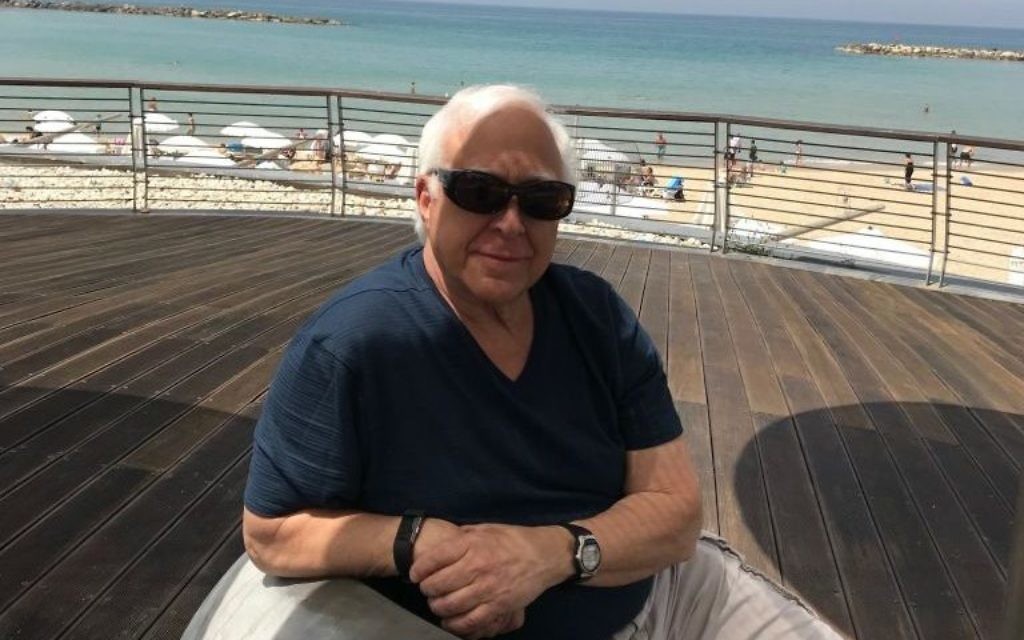In-Flight Heart Attack Doesn’t Halt Israel Trip
Physician Paul Scheinberg opts not to divert the plane despite the pain.

I reached out to my friend Paul Scheinberg, the retired chief medical officer at Emory St. Joseph’s Hospital, after seeing a Facebook post Wednesday, April 11, that he had experienced a “cardiac event” en route to Israel and had been hospitalized in Tel Aviv.
Posts with questions and well wishes came in by the hundreds from all over as Paul and his wife, Suzy, provided reassuring updates on his condition.
Jaffe: So, Paul, you are flying on Delta to Tel Aviv and …
Scheinberg: About five hours into the flight, with five hours to go, I experienced some epigastric discomfort. Initially I thought it was indigestion, and, knowing our location over the northeastern Atlantic at 39,000 feet, flying at 550 mph — we were still at least an hour from the first European terrain flyover, Ireland — I chose to quietly endure and observe. My peripheral pulse was strong and regular. My symptoms were limited, the pain did not radiate, and I had no accompanying nausea or sweating.
Get The AJT Newsletter by email and never miss our top stories Free Sign Up
An hour later, crossing over Belgium, the pain intensified somewhat, but other indicators were all stable. I notified the flight attendant that I might have a medical problem. She asked if she should ask if there were a doctor on board. Over the years, I’ve responded several times to onboard medical crises but had never directed a medical diversion. In all those cases I was able to reassure the patient and the crew of a safe resolution while proceeding to the destination. In nearly all those cases, the final destination was within 90 minutes.
I agreed to a call for medical help, but (no disrespect intended) wasn’t interested in a dermatologist or psychiatrist responding.
Fortunately, the one respondent was an experienced paramedic from Petah Tikvah who has years of experience volunteering with Hatzalah, the organization for which I was returning to Israel. After assuring that my vital signs remained stable, with no suggestion of arrhythmia, he administered full-dose aspirin tablets to chew to prevent platelet aggregation and clot formation. I was also offered supplemental oxygen. Unfortunately, although long-haul aircraft are equipped with automatic defibrillators, there is no EKG or other diagnostic tool to ascertain a cardiac crisis or assess severity.
My options were to insist that the plane make a medical diversion landing somewhere near the Balkan states or trust my medical intuition to risk continuing on to Tel Aviv. I felt I was stable (no arrhythmia, good vital signs) and decided to push on because the chest pain had eased some, and I knew I’d receive better medical care in Israel.
Jaffe: What was Delta’s response? Was there scrambling on board?
Scheinberg: Airlines balance a hard decision. It costs millions to make a medical diversion. On the other hand, they do not want to land with a dead passenger. They rely on medical professionals on board in consultation with a ground-based medical advisory service when necessary. The crew was most helpful. The captain knew of the problem but with no request for medical diversion. The crew had provided all available medical equipment to me and my supporting paramedic.

Jaffe: What happened when you landed?
Scheinberg: An ambulance was waiting to ride to Tel HaShomer Hospital. Two months prior I had visited this same cardiology center with a medical group from Atlanta and visited the CCU (cardiac care unit) and cath lab, in which I was now being treated. The staff doctors and nurses spoke to me only in Hebrew. And although my Hebrew is generally adequate (short of medically fluent), it felt like an intensive ulpan.
Jaffe: What is happening with your health insurance?
Scheinberg: On all my past travels, I have taken out comprehensive international travel insurance. In this case, I waited and purchased an Israeli “medical only” policy covering, I thought, medical care from day of arrival to day of departure (no hotel, no flight, no extended-stay coverage). Unfortunately, the policy fine print, not disclosed prior to purchase, excludes any and all medical illnesses occurring in the first 48 hours from arrival on an audacious assumption that the cause was pre-existing. (My Israeli attorney cousin is maintaining that this was acute, not pre-existing.)
Jaffe: What’s next for you?
Scheinberg: My cardiologists have strongly advised deferring return travel for at least a month. My son will relieve my wife and join me here in a rental. Although my activity is slightly limited, I hope we can take advantage of the extended stay with the opportunity to travel and experience living in Israel.

Jaffe: Some say doctors don’t make very good patients.
Scheinberg: Had I been in my home of Sandy Springs when the event occurred and taken to St Joseph’s Hospital, definitive treatment would have been more prompt. There could be grave risk in deferring intervention for several hours. Fortunately, I seem to have won that bet by benefiting from the excellent care in Israel.
I am totally overwhelmed with the outpouring of well-wishers on Facebook. Like an expert, I was even posting the Shabbat meal brought to me in CCU by extended family.




comments